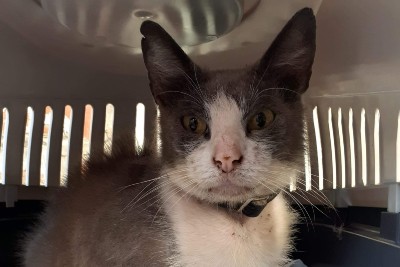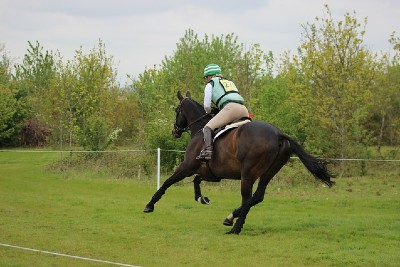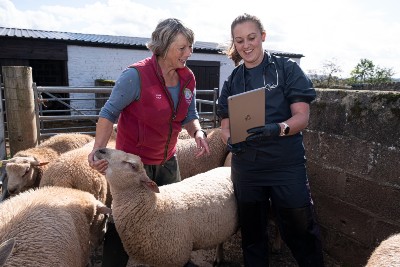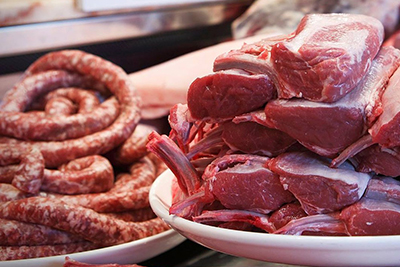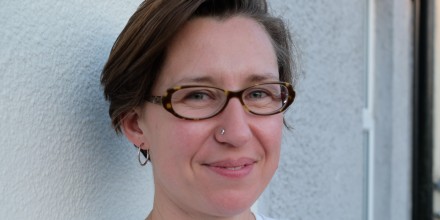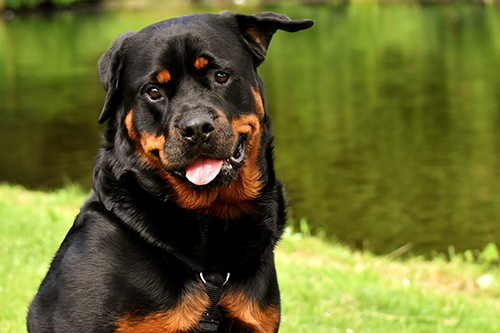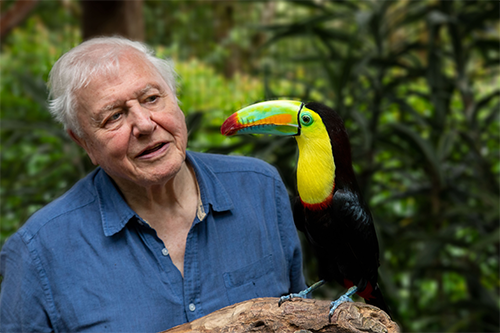News in 2021
- New PhD studentship opportunity 15 December 2021 Funded PhD Project (UK Students Only)
- New research highlights 250,000 unowned cats live in the UK’s towns and cities 28 October 2021 Around a quarter of a million cats – or broadly the human population of Southampton - are living rough in the UK’s towns and cities.
- Bristol academics identify ways to make equestrian sport safer for horses and riders 28 October 2021 In the first study of horse falls for over 20 years, University of Bristol academics have identified some simple interventions to reduce the risk of injury in equestrian sport - making it safer for both horses and riders.
- Collaborative COVID-19 lockdown effort delivers major boost for vaccine innovation in Bristol 7 September 2021 Faster vaccine development could be a step closer thanks to £4 million investment to Imophoron Ltd, a Bristol University biotech start-up developing a novel, next generation rapid-response vaccine platform called ADDomer™. Imophoron will use the investment to bring ADDomer vaccines to clinical stage, initially targeting three viruses, RSV (respiratory syncytial virus), COVID-19, and mosquito-borne Chikungunya.
- New Welsh animal project launched to combat antimicrobial resistance 6 September 2021 A Welsh project designed to help combat antimicrobial resistance in animals and the environment in Wales has been launched.
- Bristol Vet School students practice emergency response skills with state-of-the-art patient simulator 6 September 2021 Bristol Veterinary School students are now able to independently practice emergency-response skills, thanks to a simulated ‘Virtual Patient’ (nicknamed Tilly) and co-created by staff at the University of Bristol and Langford Vets.
- From racehorse to therapy horse: pioneering study into welfare of horses who help people 6 September 2021 A new study will examine the selection, training and welfare of thoroughbred horses as they transition from racetrack to therapy horse. The pioneering project, led by academics at the University of Bristol’s Veterinary School in collaboration with Racing to Relate, will develop a recognised global welfare standard for former racehorses who are moving into Equine Assisted Therapy (EAT).
- UK ‘meat tax’ would cost economy almost £250 million a year 22 July 2021 A 'meat tax' would cost the UK £242 million a year according to a new study, adding a surprising economic rationale to the National Food Strategy's dismissal of the idea on political grounds.
- GW4 takes a world leading One Health approach to tackling the antimicrobial resistance pandemic 17 June 2021 The GW4 Alliance (Bath, Bristol, Cardiff and Exeter universities – GW4) formally launched their new ‘One Health’ antimicrobial resistance research consortium this week [Wednesday 16 June]. The World Health Organisation cites antimicrobial resistance (AMR) as one of the most significant risks facing the world. AMR threatens global health and development as it impacts on human, animal and plant health and also our environment, water safety and food security.
- Dr Ellen Brooks Pollock, Senior Lecturer from Bristol Veterinary School receives OBE 14 June 2021 Congratulations to Dr Ellen Brooks Pollock who has been awarded an OBE for her services to the Scientific Pandemic Influenza Group on Modelling & the Scientific Advisory Group for Emergencies during COVID19.
- Vet School researchers feature on Attenborough Netflix series 22 April 2021 University researchers feature on a Netflix series narrated by Sir David Attenborough.
- Dog’s body size and shape could indicate a greater bone tumour risk 10 March 2021 Osteosarcoma is a painful and aggressive bone tumour in dogs that is known to be more common in certain breeds than others. New research has now confirmed that larger breeds, such as Rottweiler, Great Dane and Rhodesian Ridgeback, have a greater risk of osteosarcoma than smaller breeds, as well as showing that breeds with shorter skulls and legs have lower osteosarcoma risk. The findings could inform future breed health reforms as well as studies into the way tumours develop from normal bone.
- RCVS Knowledge launches next generation of popular evidence-based veterinary medicine course 6 March 2021 RCVS Knowledge has updated and expanded its highly regarded EBVM Learning course to provide a free, practical grounding in applying evidence-based veterinary medicine (EBVM), available on the charity’s new elearning platform. The new version of EBVM Learning is the product of an international collaboration with 18 leading veterinary educators and practitioners including Emeritus Professor Sarah Baillie from the Bristol Vet School. It offers veterinary surgeons, nurses, students and educators six hours of free CPD, which cover the five stages of EBVM and an overview of its evolution.
- Veterinary Science at Bristol ranked 13th in QS World University Rankings 4 March 2021 Courses at the University of Bristol are among the very best in the world, according to a global survey released today.
- Attenborough series reveals University research into how animals see the world 4 March 2021 A wildlife series narrated by Sir David Attenborough is beaming research by several University of Bristol academics into living rooms around the world.
- The British Horse Society and Bristol Vet School are asking the public to stop feeding horses 26 January 2021 The British Horse Society (BHS) and the University of Bristol Veterinary School are asking members of the public not to feed any horses they may encounter whilst out and about.
- Science finds simple way to make lamb leaner 14 January 2021 Scientists based at Rothamsted and the University of Bristol Veterinary School have found a clear link between the weight of lambs early in their life and meat quality – which is good news for consumers, farmers, and the environment.
